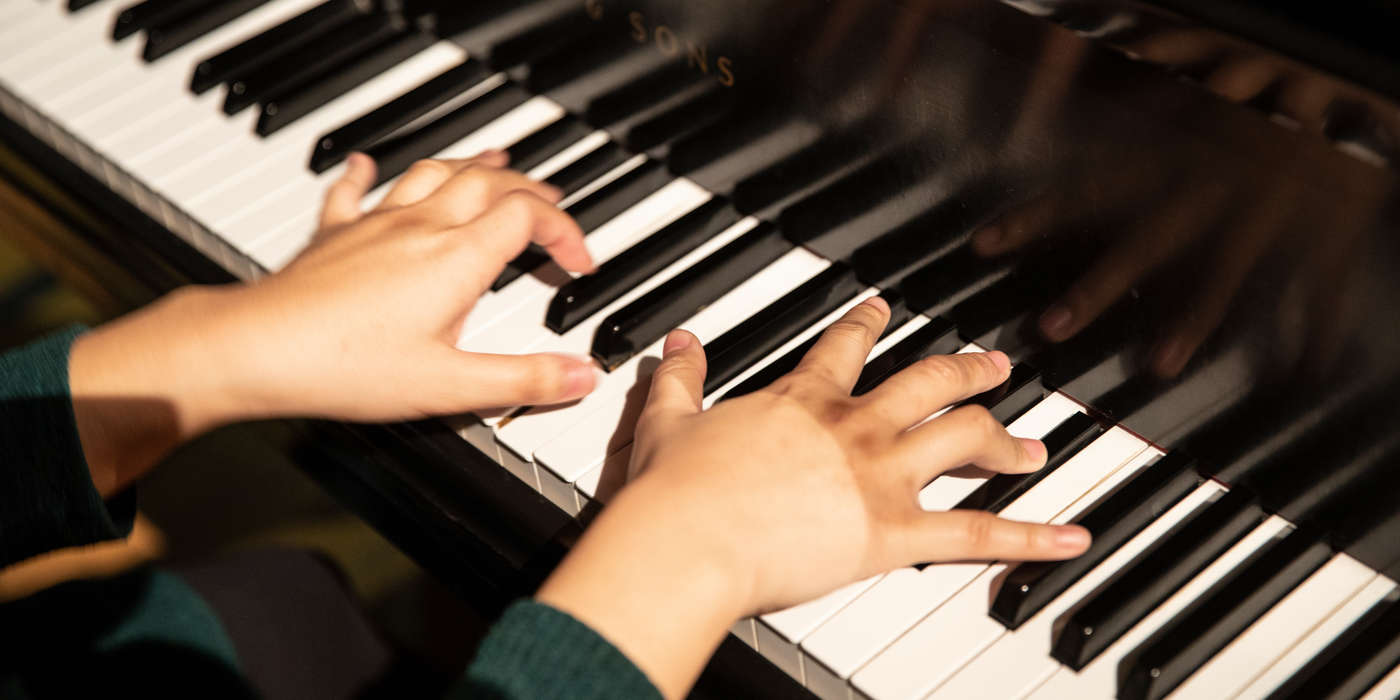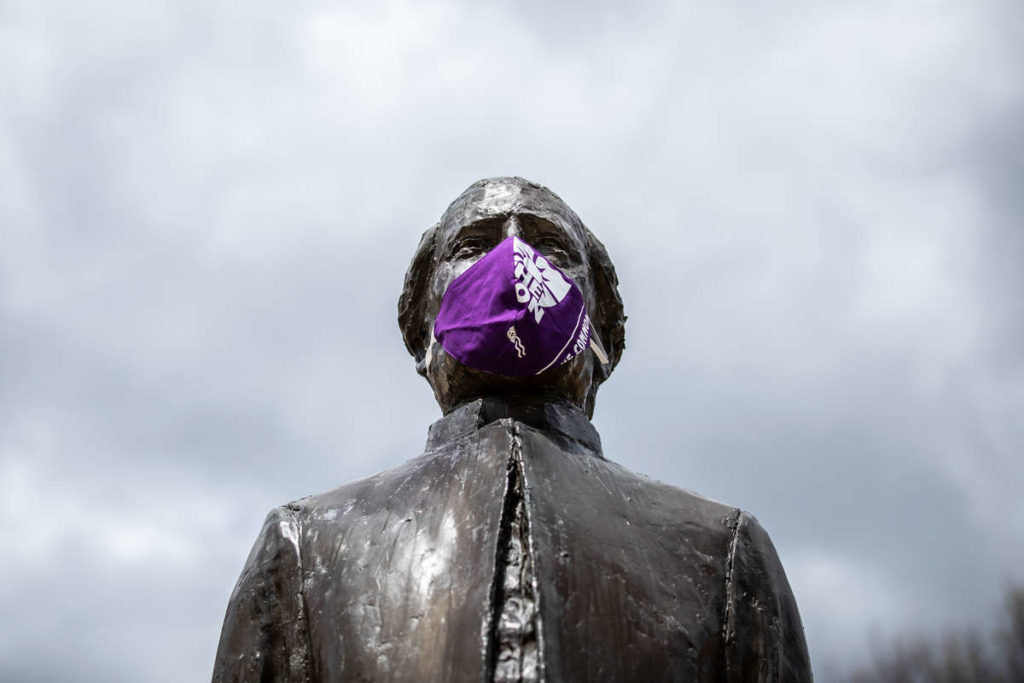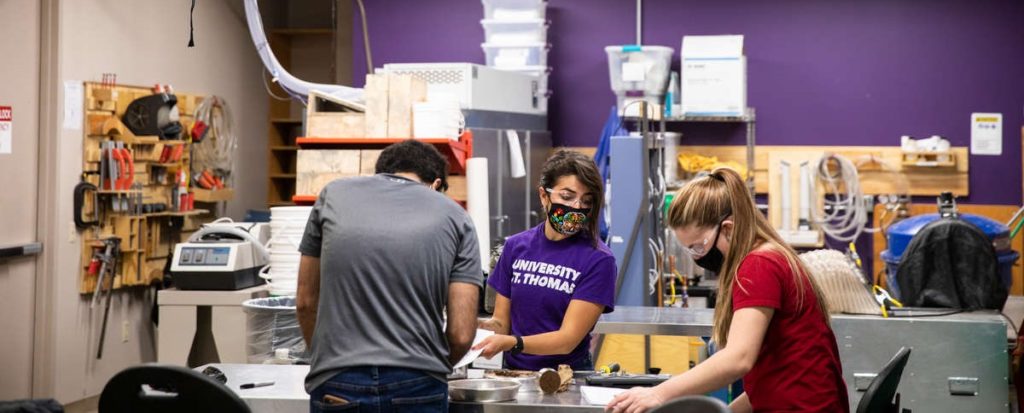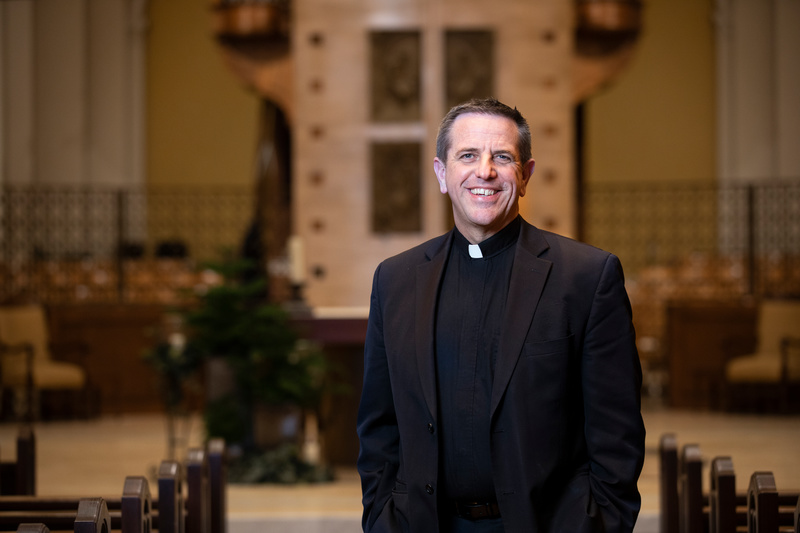To bring comfort to a world that has many people staying at home to slow the spread of COVID-19, Father Michael Joncas has written a prayer-song, “Shelter Me.” Joncas ’75 is a world-renowned composer most recognized for his hymn, “On Eagle’s Wings.” Ordained in 1980, he joined the faculty at the University of St. Thomas in 1991. Now, as artist-in-residence, he writes musical compositions for the university, which has included the school’s new alma mater.
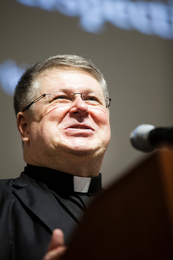
Father Michael Joncas
Most of his compositions are created by what he calls “crafting.”
“I set a task – though that’s not the romantic image of a composer struck by lightning,” he said.
However, “Shelter Me” is one of those songs that came to him in the middle of the night.
“I woke up at about 3 a.m. on March 26 with the germ of an idea to write a prayer-song to respond to the COVID-19 pandemic,” he said.
Joncas recently talked to the Newsroom, reflecting on his feelings and observations during the pandemic and the prayer-song it inspired. He also shared how music has shaped his life.
“Shelter Me” lyrics
Shepherd and sheep, my God and I:
to fresh green fields you led my steps in days gone by.
You gave me rest by quiet springs
and filled my soul with peace your loving presence brings.
Refrain: O shelter me, O shelter me:
the way ahead is dark and difficult to see.
O shelter me, O shelter me:
all will be well if only you will shelter me.
Yet now I tread a diff’rent way;
death dogs my path with stealthy steps from day to day.
I cannot find your peaceful place
but dwell in dreary darkness, longing for your face.
Refrain
I will look back in days to come
and realize your faithfulness has led me home.
Within your house I’ll find my peace,
trusting that in your mercy you have sheltered me.
At the request of the composer, “Shelter Me” is reprinted free under ONE LICENSE.
How are you feeling during this pandemic?
Surprisingly, I'm feeling fine. I'm introverted off the charts, so spending a lot of time by myself doesn't cause me any distress. I have some family and friends I try to connect with every day. I watch a fair amount of TV relating to the pandemic and find myself really sympathizing with the overwhelmed first responders and those they serve. (I was intubated and on a ventilator for more than a month when I was suffering from Guillain- Barré syndrome in 2003-04, so I have some real sympathy for those whose respiratory systems are compromised by the virus.)
What have you observed in others (related to the pandemic)?
I have observed the usual extremes that seem to come out in human behavior during a crisis. I observe some politicians and citizens who seem more oriented toward their narrow interests than toward the common good, but mostly I am heartened by the remarkable sense of solidarity arising from the majority of our citizens and others throughout the world. I am overwhelmed by the bravery of medical personnel, police, firemen and women, those in essential businesses, those stocking our grocery shelves and those continuing to supply us with what we need to keep living (the supply chain folks). And I am in awe of those parents who are trying to continue working from home while taking on another full-time job of homeschooling their children in union with online teachers.
How did this song come about?
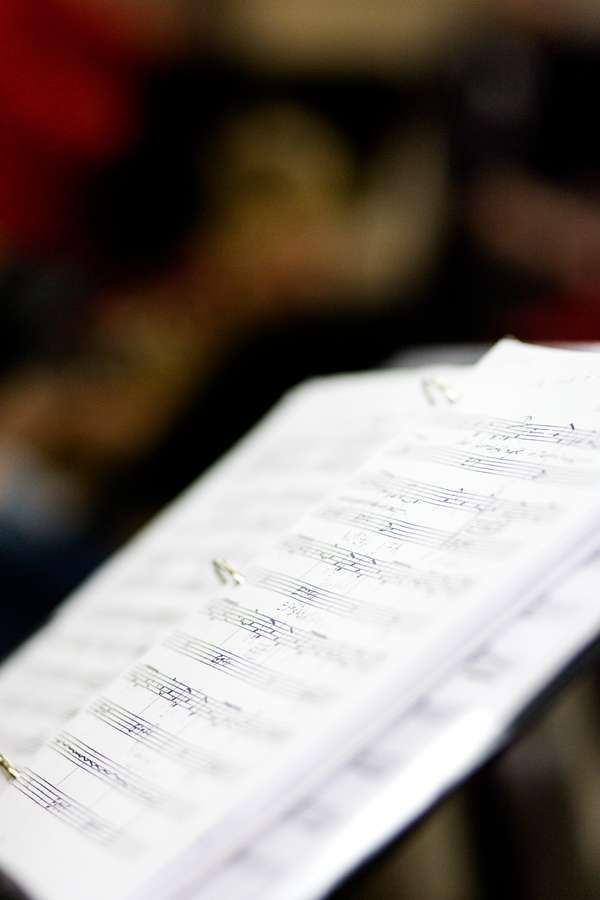 I woke up at about 3 a.m. on March 26 with the germ of an idea to write a prayer-song to respond to the COVID-19 pandemic. Once it became clear that the song would be a paraphrase of Psalm 23, the composition went quite swiftly, so that by 10 a.m. the basic composition was done, although I continued to tweak both the text and the music for a while. (That's very unlike me, where a particular song can take weeks or months to complete.) The very next day, one of my publishers, GIA Publications, agreed to publish the song, put a rush job on preparing the score and put it up on the ONE LICENSE website for people to download.
I woke up at about 3 a.m. on March 26 with the germ of an idea to write a prayer-song to respond to the COVID-19 pandemic. Once it became clear that the song would be a paraphrase of Psalm 23, the composition went quite swiftly, so that by 10 a.m. the basic composition was done, although I continued to tweak both the text and the music for a while. (That's very unlike me, where a particular song can take weeks or months to complete.) The very next day, one of my publishers, GIA Publications, agreed to publish the song, put a rush job on preparing the score and put it up on the ONE LICENSE website for people to download.
What led you to choose Psalm 23?
I think I chose Psalm 23 because it is so beloved in both the Jewish and Christian traditions, with its two central images for the divine/human relationship: shepherd and flock, and host and guest. I've already written five or six settings of this text, but by paraphrasing it I could create a text where the first stanza looks to past intimacy with God, the third stanza looks to renewed future intimacy with God, but the central stanza acknowledges a present when we are “walking in the valley of the shadow of death” – quite an accurate description of our response to the present pandemic.
What has the reaction been to your song?
I’ve been amazed to see that the song is really beginning to take off on social media. Yesterday, the director of a girls’ choir (Kantabella, the Young Voices of the Philippines) sent me her very lovely version of the piece. Just today my publisher informed me that a couple in the Netherlands intends to translate it into Dutch and post it on their website. Perhaps I’m the most touched by Catholic Charities of St. Paul and Minneapolis creating a public service announcement using the first verse of “Shelter Me” to accompany photographs of the clients they serve in the metropolitan area.
Why did you decide to ask your publisher to offer it royalty free for a year?
Both GIA Publications and I felt that the song was somewhat time sensitive, so we wanted to make it as easy as possible for people preparing virtual worship services to record and use the piece. And that is exactly what appears to be happening.
What are the sources of your music?
I’m the oldest of eight children. My mom was a lyric soprano who gave up her career to raise us kids, so that meant there was a lot of singing. My dad was in technical theater and ended his career at the University of Minnesota teaching in the theater department. That meant that he’d get me into events. Like when the Metropolitan Opera used to come to Northrop. That was wonderful.
By third grade we’d moved to St. Charles Borromeo in northeast Minneapolis. It had a wonderful choir. The music director was very kind to me and kind of let me haunt the choir just to hear what’s possible for human voices.
I went to St. Charles grade school and the music teacher, Sister Stanley, started me on a six-volume series called “Mikrokosmos” by Béla Bartók. By learning the piano through this system, I also learned a lot of 20th century compositional techniques – extremely dissonant music, multi rhythms, really interesting stuff.
How did you get into liturgical music?
I went to seminary right after eighth grade. Since the Second Vatican Council was still happening, we had to find a repertoire, because there wasn’t one in English. [Prior to the Second Vatican Council (1962-65), almost all Catholic Masses in the Roman Rite were said in Latin.] So creating this stuff and testing it out – there’s nothing better than seminary classmates to let you know pretty quickly whether or not it’s a good piece.
What makes some of your songs more popular?
I don’t know. You write and give them up to the public and hope. Things that I think are really spectacular never took off. And things that I thought were kind of “meh” ended up being really popular. I can’t predict that at all.
Almost all my songs are scriptural so I’ve stayed pretty close to the Bible. That works ecumenically because we’re sharing the same Scriptures. The translations might sometimes be different; it’s still biblical and that cuts across denominational boundaries. Another one is like “Eagle’s Wings.” I’ve thought about why that would take off, and it’s part of the imagery. The eagle is really important within the American culture. Eagles are incredibly important in Native American culture. I wrote lots of other stuff, but [this one is remembered].
Do you have a favorite song you’ve written?
No, there’s too many.
What are you working on now?
A big project I’m on now is the responsorial psalm at Mass. I’m trying to write a setting for each of them for the three-year lectionary cycle.
